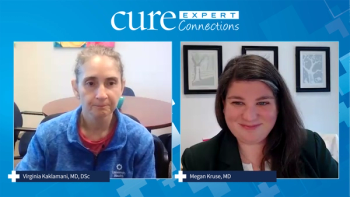
Panelists discuss how a multidisciplinary team approach to patient education and medication management is crucial for ensuring adherence and optimal outcomes with oral medications like elacestrant

Panelists discuss how a multidisciplinary team approach to patient education and medication management is crucial for ensuring adherence and optimal outcomes with oral medications like elacestrant

Panelists discuss how real-world studies have shown improved outcomes with elacestrant compared with the original EMERALD trial data, demonstrating that proper patient selection leads to better treatment responses.

Panelists discuss balancing clinical trial data with real-world patient factors when choosing between treatment options, emphasizing the importance of quality of life alongside cancer control in the second-line setting.

Panelists discuss how the EMERALD trial demonstrated elacestrant's efficacy in ESR1-mutated tumors, particularly in patients who had received CDK4/6 inhibitors for at least 12 months. This led to its FDA approval for this specific population.

Panelists discuss how to communicate genomic testing results to patients and make shared treatment decisions, particularly when multiple targeted therapy options are available for patients with ESR1 and PIK3CA mutations.

Panelists discuss how to approach second-line therapy decisions for patients with metastatic breast cancer, emphasizing the importance of biomarker testing, including ESR1 mutations, and considering patient-specific factors.

Panelists discuss how testing for specific changes in cancer cells, like ESR1 mutations, can help guide treatment choices for patients with hormone receptor-positive metastatic breast cancer.